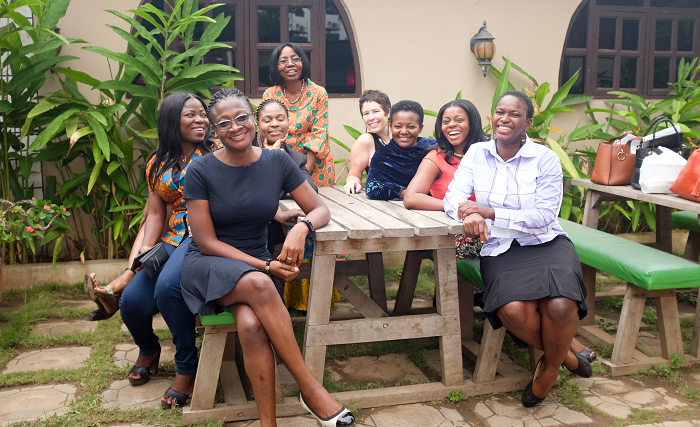
Women in the media: Partners in development
Women’s equal access to and full participation in power structures and decision making have become crucial since the United Nations’ Declaration of a Decade for Women in Mexico City in 1975.
Advertisement
That Declaration culminated in the adoption of the World Plan of Action that mandated governments to initiate policies and strategies to provide women with the opportunities to participate meaningfully in decisions that affected their lives.
Ghana’s 1992 Constitution has clear provisions guaranteeing the fundamental human rights of all citizens. Article 12 of the Constitution guarantees every person in Ghana fundamental human rights and freedoms, and article 17 provides protection against discrimination and enjoins the state to take steps to end all forms of discrimination on grounds of gender, race, colour, ethnicity, religion and creed; social and economic status.
Ghana’s obligations
Ghana also has obligations under international human rights instruments such as the UN Charter and the Universal Declaration of Human Rights, the Convention on Social and Economic Rights and the Convention on the Elimination of All Forms of Discrimination against Women (CEDAW), as well as obligations under regional instruments such as the African Charter on Human and People’s Rights and the Declaration on the Disabled.
The state is required to incorporate the provisions of these instruments into national laws.
Bias and discrimination
In spite of these laws and instruments, women continue to suffer bias and discrimination in Ghana. As well, discriminatory practices against women continue in spite of laws prohibiting such practices such as the Intestate Succession Law and the constitutional provisions against harmful cultural practices.
Of key concern are the media’s stereotypical representations of women, the neglect of issues concerning women and the nature of reporting of stories on women especially those relating to sex crimes against them that fail to make the link between violence and power relationships.
As a result of women’s immense contributions to national development of democratic space, the media continue to help in protecting women’s concerns and issues. These include making institutional arrangements that enable the media to promote democracy and women empowerment.
Women as partners
In consonance with this realisation, JRA Ayee, in his publication, Deepening Democracy in Ghana, Politics of the 2000 Elections (Accra Freedom Publications), maintains that seeing women as partners in a country’s democratic process and development has implications for policy implementation and evaluation for all segments of the population.
Like their male counterparts, women in the media in Ghana, occupying various positions, have continued working hard with their male counterparts and with the brilliant use of the pen, to inform, educate and entertain the public about a lot of issues, as well as to mentor and coach several female journalists, motivated to serve women at the grass roots.
They are among a group of people who are expected to remain committed to the welfare and the good of the state and defend it with truth and play their roles in all sincerity.
To succeed in the performance of this role, female journalists need to be confident, probing and be able to take criticisms and also feel strong to stay focused, and not to make sexism thrive.
These were some of the views of a group of senior female journalists from the print and electronic media who interacted with the Press Attaché of the US Embassy in Ghana, Sara Veldhuizen Stealy, during which they discussed the role of women in the media in promoting participatory democracy in the country.
Challenges
During their two-hour conversation in Accra, they said their status as media personalities sometimes exposed them to the challenges of being women working in the media, but were confident that women’s roles in the media were changing for the better.
They conceived that generally in Africa, women were perceived to be relegated to the background, but described the female role models in the media as important. They pointed out that the news media have given voice to popular campaigns for independence, national unity, development, and democracy throughout the twentieth century, establishing a distinguished history of political activism for journalism in Ghana.
Low status
Women’s low status is often supported by societal structures such as religion, marriage and cultural norms. In most of the national cultures and traditions, women are often considered as inferior to men and because of that women are prevented or prohibited from undertaking some activities. In some places, women are not allowed to speak at public functions where there are men. If they do not speak, their needs and concerns are not heard. Consequently, they do not participate in decisions that affect them.
A research, commissioned by the Ghana Media Standards Improvement Project (GMSIP), showed that women in Ghana attracted 15 per cent media coverage in 2010, compared with 85 per cent for men in the same period, and therefore suggested that topics and issues discussed in the media should be expanded to include issues relevant to women.
For her part, Ms Stealy advised the journalists not to get emotional to lose the favour that kept them in the job, and also work hard to give the young people the support they needed. She suggested the organisation of mentoring programmes by the senior journalists for the young ones who needed a hand.
She also suggested the need for the journalists to keep themselves abreast of the provisions of the Right to Information Bill that was drafted in 1999 and reviewed in 2003, 2005 and 2007 but was finally presented to Parliament in February 2010.




